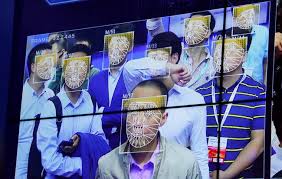Chinese tech startups thrive, yet bear 'original sin' accused by the U.S - Part 1
01/12/2020
Chinese tech startups thrive, yet bear 'original sin' accused by the U.S - Part 1The "controversial" and "unsolved" allegations against Chinese technology firms have been stacking up under the Trump administration, destroying the credibility of China's high-tech supply chain and arousing widespread sentiment of Chinese companies' being unfairly targeted by the Western government and media, a Financial Times editor says.According to Hurun Research Institute, China is home to 227 unicorns (companies that are valued above $1 billion), comprising nearly 40% of the world's total, second only to America. The future of these high-growth Chinese startups in their quests to Western markets, however, is left in limbo after the recent bans surrounding Chinese tech giants such as Huawei, Tencent's Wechat, ByteDance's Tiktok over the U.S.'s national security concerns.
"With one example for a company like Huawei or Wechat or Tiktok, they have justifiable grounds to go after them," Financial Times senior editor Wang Feng said about the unfair attack from the U.S. on Chinese companies.
He cited various explicit reasons for this attack as "original sins", including whether or not the Chinese company was state-owned or had executives related to the government; operated in sensitive fields such as defense, aviation, chips, artificial intelligence (AI), bio-tech; linked with China's "Belt and Road Initiative"; employed minorities; invested in firms with access to a large amount of personal data; or built R&D centers in the West.
"If your answer is yes to any of these questions, then, unfortunately, you come under some sort of suspicion from a Western perspective," Feng said.
Last year, three Chinese leading AI unicorns, SenseTime, Megvii, and Yitu, which were included in the Trump administration's Entity List, were accused of involving in the Chinese government campaign against Xinjiang province's ethnic minorities. The backlisting means that those companies could not trade with or purchase technology from U.S. firms, given that China's fast-growing AI industry is reported to be able to beat the U.S. supremacy in five to 10 years, according to The Global AI Index published in 2019 by the London-based Tortoise Intelligence.
A representative of Megvii said in a statement that the company "strongly objects" its ill-grounded inclusion on the list. The statement clarified that while the Human Rights Watch report on a surveillance app in Xinjiang initially implicated Megvii's Face++ solution, the organization then corrected and reissued the report without highlighting Megvii name as there was no evidence of its involvement.
"We believe our inclusion on the list reflects a misunderstanding of our company and our technology, and we will be engaging with the U.S. government on this basis," the statement said.
"By this stage, the U.S. is just striking at any Chinese company, any national champion," Feng said, emphasizing that the rising "dodgy stories" related to China's possibilities of threatening cybersecurity, committing intellectual property theft, violating human rights, or evading taxes are just justifications during President Trump's tech cold war with China.
The "controversial" and "unsolved" allegations against Chinese technology firms have been stacking up under the Trump administration, destroying the credibility of China's high-tech supply chain and arousing widespread sentiment of Chinese companies' being unfairly targeted by the Western government and media, a Financial Times editor says.

According to Hurun Research Institute, China is home to 227 unicorns (companies that are valued above $1 billion), comprising nearly 40% of the world's total, second only to America. The future of these high-growth Chinese startups in their quests to Western markets, however, is left in limbo after the recent bans surrounding Chinese tech giants such as Huawei, Tencent's Wechat, ByteDance's Tiktok over the U.S.'s national security concerns.
"With one example for a company like Huawei or Wechat or Tiktok, they have justifiable grounds to go after them," Financial Times senior editor Wang Feng said about the unfair attack from the U.S. on Chinese companies.
He cited various explicit reasons for this attack as "original sins", including whether or not the Chinese company was state-owned or had executives related to the government; operated in sensitive fields such as defense, aviation, chips, artificial intelligence (AI), bio-tech; linked with China's "Belt and Road Initiative"; employed minorities; invested in firms with access to a large amount of personal data; or built R&D centers in the West.
"If your answer is yes to any of these questions, then, unfortunately, you come under some sort of suspicion from a Western perspective," Feng said.
Last year, three Chinese leading AI unicorns, SenseTime, Megvii, and Yitu, which were included in the Trump administration's Entity List, were accused of involving in the Chinese government campaign against Xinjiang province's ethnic minorities. The backlisting means that those companies could not trade with or purchase technology from U.S. firms, given that China's fast-growing AI industry is reported to be able to beat the U.S. supremacy in five to 10 years, according to The Global AI Index published in 2019 by the London-based Tortoise Intelligence.
A representative of Megvii said in a statement that the company "strongly objects" its ill-grounded inclusion on the list. The statement clarified that while the Human Rights Watch report on a surveillance app in Xinjiang initially implicated Megvii's Face++ solution, the organization then corrected and reissued the report without highlighting Megvii name as there was no evidence of its involvement.
"We believe our inclusion on the list reflects a misunderstanding of our company and our technology, and we will be engaging with the U.S. government on this basis," the statement said.
"By this stage, the U.S. is just striking at any Chinese company, any national champion," Feng said, emphasizing that the rising "dodgy stories" related to China's possibilities of threatening cybersecurity, committing intellectual property theft, violating human rights, or evading taxes are just justifications during President Trump's tech cold war with China.